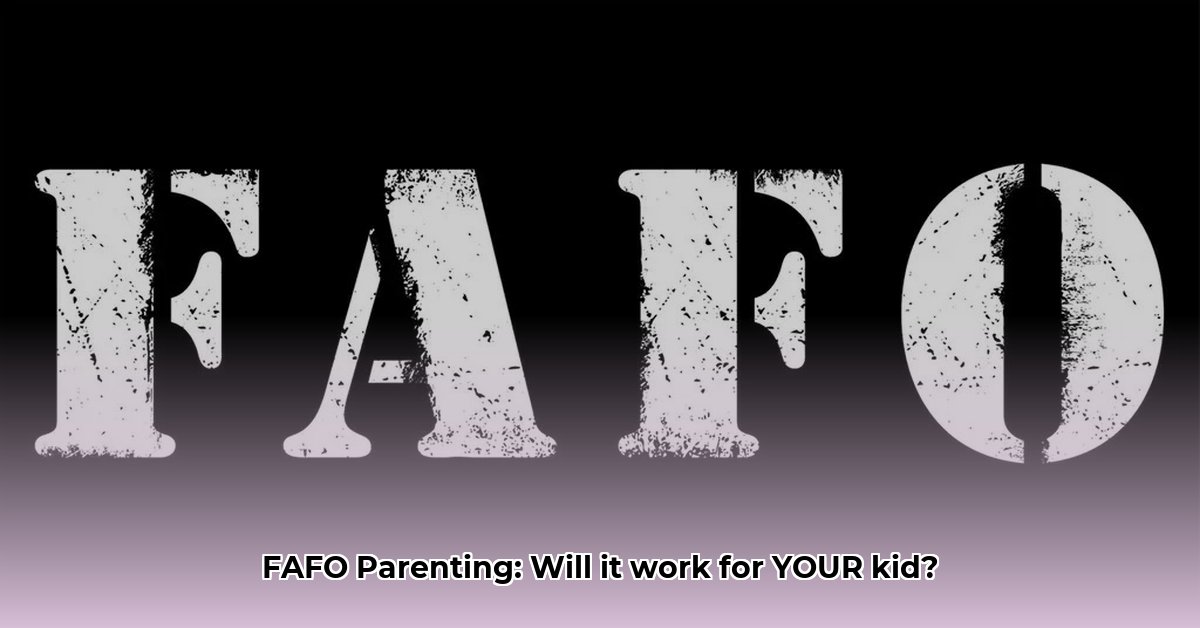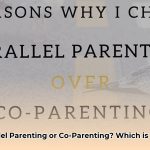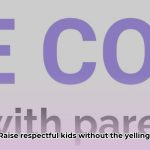FAFO parenting—short for “fuck around and find out”—is gaining attention. It centers on allowing children to experience the natural consequences of their actions within safe boundaries. This article explores the nuances of FAFO parenting, examining its potential benefits and drawbacks, offering practical tips, and comparing it to other parenting styles.
Decoding FAFO: How It Works
FAFO parenting isn’t about abandoning children to face harsh realities. Instead, it’s a structured approach to fostering independence and responsibility. It’s about letting them experience the minor bumps and ripples of their choices—like soggy feet from wearing sandals in the rain—and learning from them.
The “safety net” aspect is crucial. Parents set boundaries and intervene when necessary, preventing serious harm. It’s akin to teaching a child to ride a bike: providing support and gradually letting go as they gain confidence.
There’s debate about the appropriate level of “natural consequence.” Some child psychologists suggest prioritizing the child’s emotional resilience, intervening if a consequence is likely to cause significant distress. Others argue that even uncomfortable experiences, within safe limits, can be valuable. Research on the long-term effects of FAFO parenting is ongoing, so current understandings may evolve.
Pros of FAFO Parenting:
- Enhanced Problem-Solving: Facing consequences can encourage children to think critically and find solutions independently.
- Increased Independence: FAFO promotes self-reliance and decision-making skills.
- Reduced Power Struggles: Letting natural consequences do the “teaching” can minimize parent-child conflicts.
Cons of FAFO Parenting:
- Potential for Harm: There’s a risk of physical or emotional injury if consequences aren’t carefully considered.
- Inconsistency: Subjectivity in defining “natural consequences” can lead to inconsistent application.
- Not Universally Suitable: FAFO may not be appropriate for all children, particularly those with specific learning or emotional needs.
FAFO vs. Other Parenting Styles: A Comparison
How does FAFO compare to established parenting styles like Authoritarian, Authoritative, Permissive, and Uninvolved?
| Feature | FAFO (Consequence-Driven) | Authoritarian | Authoritative | Permissive | Uninvolved |
|---|---|---|---|---|---|
| Rules | Minimal, often implied | Strict, numerous | Clear, explained, discussed | Few, if any | Practically nonexistent |
| Communication | Limited guidance, emphasis on experience | One-way, parent-led | Two-way, open dialogue | Open, but may lack boundaries | Limited, often neglectful |
| Discipline | Natural consequences | Punishment-focused | Consequences linked to behavior, with explanations | Lenient, inconsistent | Absent |
| Responsiveness | Low, minimal intervention | Low | High | High, sometimes overly indulgent | Extremely low |
| Independence | High, encouraged early on | Low | Fostered gradually | High, but may lack structure | Forced prematurely, due to neglect |
For example, a child repeatedly forgetting their lunch might experience hunger under FAFO parenting, while an Authoritative parent might discuss the issue and help create a routine. An Authoritarian parent might resort to punishment.
While some believe FAFO fosters resilience and problem-solving, concerns exist regarding safety and the potential for harm. A lack of guidance might also hinder the development of empathy and social responsibility.
Implementing FAFO: Practical Tips and Considerations
FAFO isn’t neglect. It requires thoughtful application, balancing freedom with guidance.
Examples of FAFO in Action:
- Unfinished Dinner: Allowing a child to experience mild hunger after refusing dinner (within reasonable timeframes).
- Toy Disputes: Removing a toy contested by siblings, prompting a later discussion about sharing.
- Screen Time Limits: Enforcing pre-set limits and discussing time management strategies.
When to Reconsider FAFO:
- Safety Concerns: Prioritize immediate intervention in potentially dangerous situations.
- External Factors: Avoid FAFO when consequences are beyond the child’s control.
- Developmental Stage: Adapt the approach to the child’s cognitive and emotional maturity.
Communicating with Your Child:
Explain that FAFO isn’t punishment, but an opportunity for growth and independence. Frame consequences as learning experiences.
Long-Term Goals:
FAFO aims to cultivate essential life skills like problem-solving, decision-making, and responsibility. It’s not a universal solution, but its principles—applied thoughtfully within a supportive framework—can contribute to a child’s development.
Ethical Considerations and Ongoing Research
FAFO parenting raises ethical questions. Where’s the line between a learning experience and potential neglect? Further research is needed to explore these questions and the long-term impacts of FAFO parenting. Parents should carefully consider their values, their child’s individual needs, and the potential risks and benefits before adopting this approach. It’s crucial to remember that a balanced approach, incorporating elements of various parenting styles and prioritizing open communication and emotional support, often offers the most effective path to raising well-adjusted children. Ongoing research in child development continues to inform our understanding of effective parenting practices, making it important to stay informed and adapt approaches as new information emerges.
- 200+ Co-Parenting Quotes: Inspiration, Humor, and Wisdom for Every Stage - February 5, 2025
- Parenting Teens with Love and Logic: A Practical Guide to Raising Responsible Adults - February 5, 2025
- Indiana Parenting Time Guidelines PDF (2024): Download & Understand - February 4, 2025
















